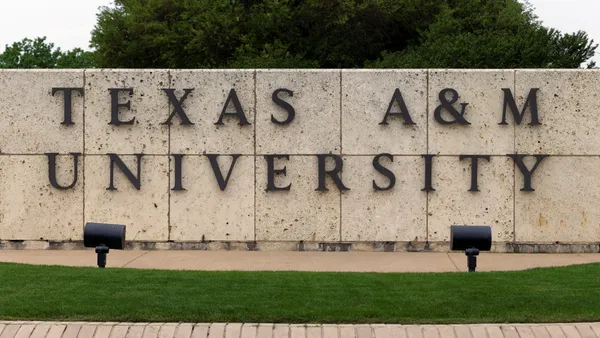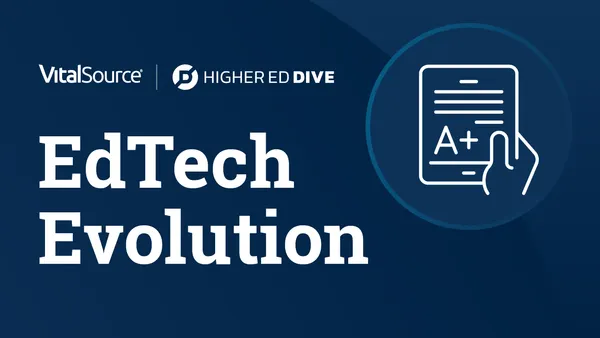Dive Brief:
- Colorado State University System's Global Campus (CSU-Global) last week announced an enrollment partnership with Kenzie Academy, an Indianapolis-based career training school that focuses on technology skills and digital marketing.
- Students now have the option to begin a one-to-two-year program with Kenzie before taking online classes with CSU-Global to complete a bachelor's degree.
- Kenzie graduates will be able to roll up to 48 of the credits they earned there into a bachelor's degree with CSU-Global. Kenzie students will also receive a 10% discount on CSU-Global tuition.
Dive Insight:
CSU-Global launched in 2007 to provide working adults in the state with an affordable college education online. It has since graduated more than 10,000 students and currently enrolls some 18,000 students.
Similarly, Kenzie Academy bills itself as an alternative for working adults and recent high school graduates who don't want to go to a traditional college. Kenzie students take classes either in-person or online, have the option to work part-time in a tech support job, and can pay for the program through an income-share agreement.
Officials from the two institutions say a partnership was a natural fit, as they both aim to serve nontraditional students with more flexible educational options at a more affordable price point. "We believe deeply in the need for learners to have better pathways that can meet them where they are," Emily Wattman-Turner, Kenzie's chief operating officer, said in an interview with Education Dive.
This is not CSU-Global's first partnership with a nontraditional academic institution. Last year, the online college partnered with OnlineDegree.com, which offers tuition-free courses built from open educational resources, Inside Higher Ed reported. Now, students who complete those courses can use them to count for up to 44 credits at CSU-Global.
Other institutions that have struck deals with OnlineDegree.com include Southern New Hampshire University and Excelsior College.
Not all of CSU-Global's partnerships garnered interest from students. In 2012, the online college said it would offer students credit for completing a computer science MOOC from Udacity. However, after a year, no students had taken advantage of the offer, The Chronicle of Higher Education reported.
The tides may be changing for such partnerships, however. EdX, which launched in 2012, offers several online MicroMasters programs, which students can roll into credit for a certificate or degree from a partnering institution.
The MOOC provider has also teamed up with several universities — including Georgia Tech, Indiana University and the University of California, San Diego — to offer eight master's degrees in topics such as data science, accounting and leadership.
Coursera, another MOOC provider, is looking to expand its master-track certificates, which can be used to count for credit at some partner institutions.
Meanwhile, traditional colleges are forging relationships with alternative postsecondary education providers.
For instance, The Make School, a San Francisco-based coding program, is offering an accredited bachelor's in applied computer science through a partnership with Dominican University of California. In return, the liberal arts school will be able to provide its students with a computer science minor.













